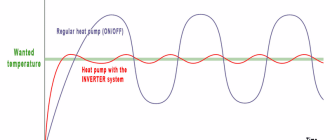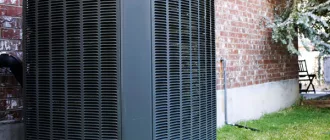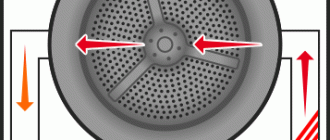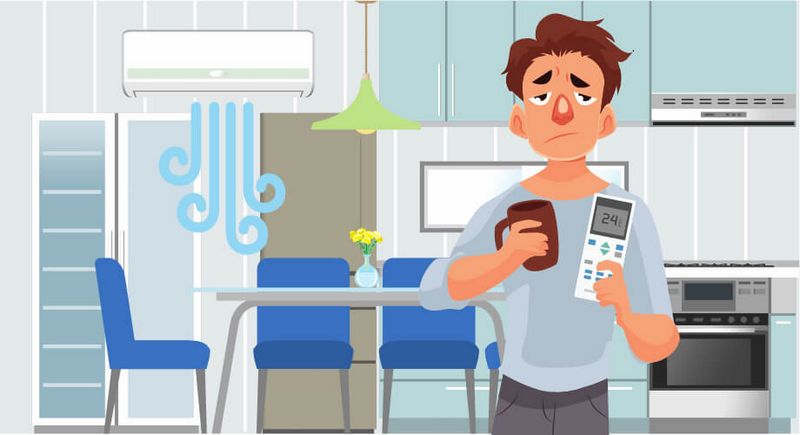
Dispelling Common Misconceptions: Exploring the Top 10 Myths about Air Conditioners
In today’s modern world, air conditioners have become an essential part of our lives, providing us with comfort and relief during the hot summer months. However, along with their popularity, numerous myths and misconceptions about air conditioners have also emerged. In this article, we will debunk the top 10 misconceptions about air conditioners and shed light on the truth behind them.
Keywords: air conditioners, myths, misconceptions, top, about, debunking, 10
Myth 1: Air conditioners make the air in a room stale and dry.
Truth: While air conditioners do remove humidity from the air, they also have filters that help to purify and circulate the air, removing dust, allergens, and other particles.
Myth 2: Leaving the air conditioner on all day is more efficient than turning it off and on.
Truth: It is actually more energy-efficient to turn off your air conditioner when you are not at home or when the room is already cool enough. Cooling an empty room wastes energy and increases your utility bill.
Myth 3: Air conditioners require regular replacement of refrigerant.
Truth: Air conditioners do not consume refrigerant like a car consumes fuel. If your air conditioner is low on refrigerant, it is likely due to a leak that needs to be repaired.
Stay tuned for the next five myths and their corresponding truths in the upcoming article!
Myth 4: Air conditioners are only useful for cooling the air.
Truth: Air conditioners have the ability to both cool and heat the air. They can provide warmth during the colder months as well.
Myth 5: Air conditioners are harmful to your health.
Truth: When properly maintained and regularly cleaned, air conditioners do not pose any health risks. They can actually improve indoor air quality by filtering out pollutants.
As we continue to debunk these myths, it is important to separate fact from fiction when it comes to air conditioners. By understanding the truth behind these misconceptions, we can make informed decisions and maximize the benefits of this modern-day convenience.
Air Conditioners Cause Illness
One of the top misconceptions about air conditioners is that they can cause illness. While it is true that poorly maintained air conditioners can contribute to respiratory problems, the air itself does not directly cause illness.
Most air conditioners are designed to filter and circulate air, removing dust, allergens, and other airborne particles. However, if the air conditioner is not properly cleaned or maintained, it can become a breeding ground for mold, bacteria, and other harmful substances.
To debunk this myth, it is important to understand that air conditioners do not introduce any new pollutants into the air. They simply filter and circulate the existing air in a given space. Therefore, the quality of the air being circulated depends on the cleanliness and proper maintenance of the air conditioner.
To ensure the air conditioner does not contribute to illness, it is essential to regularly clean and replace filters, clean the evaporator coils, and maintain proper humidity levels in the space. Additionally, it is recommended to have regular professional inspections and maintenance performed on the air conditioner to ensure its proper functioning.
By debunking this myth and understanding the importance of proper maintenance, it is possible to enjoy the benefits of air conditioning without worrying about potential health risks.
Air Conditioners Waste Energy
One of the top misconceptions about air conditioners is that they waste energy. While it is true that air conditioners consume electricity, the idea that they are inherently wasteful is a myth.
Air conditioners are designed to cool the air in a room or building by removing heat and moisture. This process requires energy, but modern air conditioners are much more efficient than older models.
Thanks to advancements in technology, air conditioners today are designed to use energy more effectively and reduce waste. Energy-efficient air conditioners are equipped with features such as programmable thermostats, which can help regulate temperature and energy consumption.
Additionally, some misconceptions about air conditioners wasting energy may arise from improper usage or maintenance. For example, using an air conditioner continuously at a very low temperature or not properly maintaining the air filters can lead to increased energy consumption.
Overall, it is important to debunk the myth that air conditioners waste energy. While they do require energy to operate, properly used and maintained air conditioners can provide effective cooling while minimizing energy waste.
Air Conditioners Make the Air Dry
As we continue to debunk the myths and misconceptions surrounding air conditioners, one common misconception is that air conditioners make the air dry. While it may feel that way, especially in more arid climates, the reality is that air conditioners do not actually remove moisture from the air, but instead, they cool the air by removing heat.
When air is cooled by an air conditioner, water vapor in the air condenses into liquid water, forming droplets. This is why you may notice moisture or water droplets around your air conditioner. However, this does not mean that the air is becoming dry. In fact, the relative humidity in the air remains the same.
Humidity refers to the amount of moisture in the air relative to the maximum amount of moisture the air can hold at a specific temperature. Air conditioners work by circulating air through a system of coils, cooling the air and reducing its temperature. As the air temperature drops, the relative humidity increases because cooler air has a lower capacity to hold moisture.
While the air conditioner cools the air, it does not remove moisture from the air, as a dehumidifier would. Therefore, if your indoor air feels dry when the air conditioner is running, it may be due to other factors, such as inadequate ventilation or low outdoor humidity.
| misperception, myth, air conditioner, air, dry, moisture, cooler, cooling, humidity, relative humidity, dehumidifier, ventilation, outdoor humidity |
Air Conditioners Make You Gain Weight
As part of debunking myths about air conditioners, it is important to address the misconception that air conditioners make you gain weight. This is one of the top misconceptions that people have about air conditioners.
Contrary to popular belief, air conditioners themselves do not directly cause weight gain. The keywords to understand here are “air conditioners” and “weight gain.” Air conditioners are designed to cool the air in a room and maintain a comfortable temperature. They do not have any direct impact on your body’s metabolism or calorie burning process.
Weight gain occurs when there is an imbalance between calories consumed and calories burned. The main factors contributing to weight gain are unhealthy eating habits, lack of physical activity, and a sedentary lifestyle. These factors are not directly related to the use of air conditioners.
It is worth noting that air conditioners can create a comfortable environment that encourages sedentary behavior, such as sitting or lying down for extended periods. This may indirectly contribute to weight gain if it leads to a decrease in physical activity and an increase in caloric intake.
However, it is important to remember that air conditioners themselves are not the cause of weight gain. It is essential to maintain a balanced diet, engage in regular exercise, and lead an overall healthy lifestyle to manage weight effectively. Blaming air conditioners for weight gain is a misconception that overlooks the real factors contributing to weight gain.
In summary, the myth that air conditioners make you gain weight is false. Air conditioners are designed to regulate temperature, and they do not directly affect your body’s metabolism or caloric balance. Weight gain is caused by various factors unrelated to air conditioners, such as poor eating habits and lack of physical activity.
Air Conditioners Cause Skin Problems
One common misconception about air conditioners is that they can cause skin problems. However, this is not true. Air conditioners actually help to maintain a comfortable and healthy indoor environment, which can be beneficial for the skin.
Some people may believe that air conditioners dry out the skin, leading to dryness, itching, or even rashes. However, air conditioners do not directly cause these issues. In fact, they can help to regulate humidity levels, preventing excessive dryness or moisture in the air.
It is important to note that the real culprit behind skin problems is not the air conditioner itself, but rather the lack of proper maintenance or improper use of the unit. For example, dirty air filters or ducts can harbor bacteria or allergens that may irritate the skin when circulated throughout the room.
To ensure that the air conditioner does not cause any skin problems, it is important to regularly clean and replace air filters, as well as keep the unit well-maintained. Additionally, using a humidifier or a moisturizer in conjunction with the air conditioner can help combat dryness, if necessary.
In conclusion, it is a myth that air conditioners cause skin problems. With proper maintenance and use, air conditioners can actually contribute to a healthier and more comfortable indoor environment for the skin. It is important to debunk this misconception and understand the benefits of using air conditioners in our daily lives.
Air Conditioners Are Noisy
One of the top misconceptions about air conditioners is that they are noisy. However, this is not always the case. While older models of air conditioners may have been noisy, modern ones are designed to be much quieter.
Advancements in technology have allowed for the development of quieter air conditioning units. Manufacturers have implemented noise reduction techniques, such as sound insulation and improved fan design, to minimize noise levels. Additionally, many air conditioners now come with features like variable speed fans and night mode, which further reduce noise levels.
Another important factor to consider is the installation of the air conditioner. Proper installation plays a crucial role in minimizing noise. Ensuring that the unit is properly secured and not in direct contact with any surfaces can greatly reduce vibrations and subsequent noise. Regular maintenance and cleaning of the unit also contribute to its overall performance and noise reduction.
It is important to note that while air conditioners are designed to provide comfortable cooling, there may still be some low-level noise associated with their operation. However, the noise produced by modern air conditioners is significantly lower compared to older models, making them much more tolerable.
In conclusion, the misconception that air conditioners are noisy is debunked by the technological advancements and design improvements made in recent years. While there may still be some noise associated with their operation, it is no longer a major concern. So, if you’re considering an air conditioner, don’t let the misconception of noise deter you from enjoying the benefits of a cool and comfortable environment.
Air Conditioners Are Expensive to Run
One of the biggest misconceptions about air conditioners is that they are expensive to run. While it is true that air conditioners can increase your electricity bill, modern units have become much more energy-efficient in recent years, helping to minimize the cost of running them.
In fact, many air conditioner manufacturers have made significant advancements in technology to improve the energy efficiency of their units. This means that newer models consume less energy while still providing the same level of cooling. Additionally, features like programmable thermostats and energy-saving modes allow you to control and optimize your air conditioner’s energy usage.
It’s also important to note that the cost of running an air conditioner can vary depending on factors such as the size of your space, the efficiency of your unit, the local climate, and your personal usage habits. By properly sizing and maintaining your air conditioner, as well as adopting energy-efficient practices, you can further reduce your energy costs.
To ensure that your air conditioner operates efficiently and effectively, it is recommended to have regular maintenance performed by a professional technician. This can help identify any potential issues and ensure that your unit remains in optimal condition.
While it’s true that running an air conditioner can increase your energy costs, it’s important not to overstate the expense. By choosing an energy-efficient model, optimizing your usage, and properly maintaining your unit, you can enjoy the comfort of air conditioning without breaking the bank.
Air Conditioners Lower Immune System
One of the top 10 misconceptions about air conditioners is the belief that they lower the immune system. This myth has been circulating for a long time, but it is not supported by scientific evidence.
The idea behind this misconception is that air conditioners harbor and circulate bacteria and other harmful particles, leading to a weakened immune system. However, modern air conditioners are designed with filters that trap these particles and prevent them from circulating in the air. These filters need to be cleaned or replaced regularly to maintain their effectiveness.
Furthermore, air conditioners help to regulate humidity levels, which can actually be beneficial for the immune system. Air that is too humid can promote the growth of mold and mildew, which can trigger allergies and respiratory problems. By reducing humidity, air conditioners create an environment that is less hospitable to these allergens.
In addition, air conditioners can improve indoor air quality by filtering out pollutants such as dust, pollen, and pet dander. This can help to reduce allergies and respiratory symptoms, leading to a healthier immune system.
It is important to note that air conditioners need to be properly maintained to ensure their optimum performance. Regular cleaning and maintenance can help to prevent the buildup of dirt and mold, which can have negative health effects.
| air conditioners, lower immune system, misconceptions, top 10, myths, debunking |
Air Conditioners Only Cool the Air
When it comes to air conditioners, there are many misconceptions and myths that surround them. One of the most common misconceptions is that air conditioners only cool the air. While cooling is certainly one of the main functions of an air conditioner, it is not the only thing they do. In this article, we will debunk this myth and explain the other functions of an air conditioner.
Keywords: air conditioners, myths, 10, misconceptions, debunking, about, air
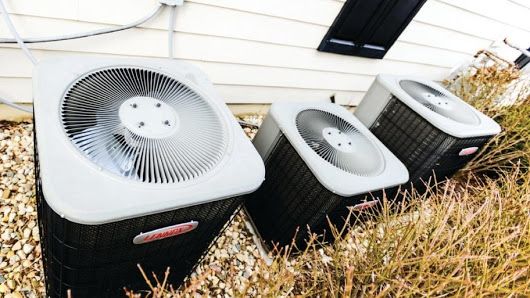
An air conditioner not only cools the air, but it also helps to regulate the temperature and humidity levels in a room or building. This is why air conditioners are often used in both residential and commercial settings to create a comfortable and controlled indoor environment.
One of the main ways that air conditioners cool the air is by passing it over a set of coils filled with refrigerant. As the air passes over the coils, the refrigerant absorbs heat from the air, causing it to cool down. The cooled air is then blown back into the room, lowering the temperature.
However, air conditioners also have other important functions. They help to circulate the air, ensuring that it is evenly distributed throughout the space. This is important for maintaining a consistent temperature and preventing hot or cold spots in the room.
Additionally, air conditioners can also help to improve indoor air quality. They have filters that trap dust, pollen, and other airborne particles, preventing them from circulating in the air. This can be especially beneficial for individuals with allergies or respiratory conditions.
In conclusion, air conditioners do more than just cool the air. They also regulate temperature and humidity levels, circulate the air, and improve indoor air quality. Understanding these functions can help dispel the myth that air conditioners only cool the air, and make you appreciate their importance in creating a comfortable indoor environment.
Air Conditioners Produce Harmful Emissions
One common misconception about air conditioners is that they produce harmful emissions. However, this is not true. Air conditioners do not emit any harmful gases or pollutants into the air. They work by circulating and cooling the air inside a building, using a refrigerant to absorb heat from the indoor air and release it outside. The refrigerant used in modern air conditioners is designed to be environmentally friendly and does not contribute to air pollution or climate change.
It is important to debunk this myth and understand that air conditioners are not a major source of harmful emissions. The main environmental concern with air conditioners is their energy consumption, as they can use a significant amount of electricity, especially if they are not energy-efficient. Therefore, it is crucial to choose an energy-efficient air conditioner and use it responsibly to minimize its impact on energy consumption and carbon footprint.
By understanding the facts and debunking misconceptions about air conditioners, we can make more informed decisions about their use and contribute to a greener and more sustainable future.
Air Conditioners Are Bad for the Environment
One of the common misconceptions about air conditioners is that they are bad for the environment. While it is true that air conditioners consume energy and contribute to greenhouse gas emissions, there are several factors to consider.
Firstly, modern air conditioners are designed to be more energy-efficient than ever before. They use advanced technologies such as inverter compressors and programmable thermostats to optimize energy consumption. This means that they consume less electricity compared to older models, resulting in lower greenhouse gas emissions.
Secondly, the environmental impact of air conditioners can be minimized through proper maintenance and usage. Regular cleaning and maintenance of air filters can improve the system’s efficiency, reducing energy consumption. Additionally, setting the thermostat to a moderate temperature and using energy-saving modes can further reduce the environmental impact.
Furthermore, the impact of air conditioners on the environment can be offset through the use of renewable energy sources. By utilizing solar panels or other forms of clean energy to power air conditioners, the carbon footprint can be significantly reduced.
It is important to debunk the misconception that air conditioners are inherently bad for the environment. While they do consume energy and contribute to greenhouse gas emissions, advancements in technology and responsible usage can significantly minimize their environmental impact. By choosing energy-efficient models, maintaining them properly, and using renewable energy sources, air conditioners can be used without significant harm to the environment.
Air Conditioners Are Difficult to Maintain
One of the top misconceptions about air conditioners is that they are difficult to maintain. However, this is just a myth that needs to be debunked. While it is true that air conditioners require regular maintenance, it is not a difficult task.
One of the key things to keep in mind is to clean or replace the air filters regularly. This helps in maintaining the efficiency of the air conditioner and ensures clean air circulation. Cleaning the air filters is a simple task and can be done by following the manufacturer’s instructions.
In addition to cleaning the filters, it is also important to check the condenser coils and the evaporator coils for any dirt or debris buildup. This can be done by gently brushing off the dirt or using a vacuum cleaner to remove any debris. Cleaning the coils is crucial as any buildup can reduce the efficiency of the air conditioner.
Another important aspect of air conditioner maintenance is to check the refrigerant levels. Low refrigerant levels can impact the cooling performance of the air conditioner. If the refrigerant levels are low, it is important to call a professional technician to recharge the refrigerant.
Regularly inspecting the outdoor unit and clearing any debris or obstructions around it is also a crucial part of air conditioner maintenance. Additionally, checking and tightening any loose electrical connections can help in preventing future issues.
Overall, maintaining an air conditioner is not a difficult task. By following these simple steps and scheduling regular maintenance with a professional technician, you can ensure that your air conditioner operates efficiently and lasts for a long time.
Air Conditioners Break Easily
One of the common misconceptions about air conditioners is that they break easily. However, this is far from the truth. Air conditioners are designed and built to be durable and long-lasting, and they undergo rigorous testing to ensure their reliability.
While it is true that air conditioners can experience problems or malfunctions, these issues are often the result of improper installation, lack of maintenance, or neglecting to clean or replace filters. Regular maintenance and proper care can help prevent these issues and extend the lifespan of your air conditioner.
Another factor that contributes to the misconception that air conditioners break easily is the misinterpretation of normal operating sounds. Air conditioners often produce various noises during their operation, such as the sound of the compressor turning on and off or the sound of air flowing through the vents. These sounds are typically normal and do not indicate a malfunction or impending breakdown.
It is important to address any concerns or issues with your air conditioner promptly by contacting a professional HVAC technician. They can diagnose the problem and provide the necessary repairs or maintenance to keep your air conditioner running smoothly.
By debunking this myth and understanding the facts about air conditioners, you can make informed decisions about your HVAC system and ensure its proper functioning for years to come.
Air Conditioners Impact Sleep Quality
One of the top 10 myths about air conditioners is that they negatively impact sleep quality. However, this is not true. Contrary to popular belief, air conditioners can actually improve sleep quality.
Keywords: air conditioners, myths, sleep quality, debunking
Many people believe that sleeping with the air conditioner on can lead to low quality sleep due to temperature fluctuations, noise, and dryness. While it is true that improper use of an air conditioner can cause these problems, when used correctly, air conditioners can create an ideal sleep environment.
Temperature is a key factor when it comes to sleep quality. The optimal temperature for sleep is between 60°F and 67°F (15°C and 19°C). Air conditioners can easily maintain this range, ensuring a comfortable sleeping environment. Additionally, a cool room can help your body relax and trigger the natural sleep process.
Noise is another concern people have about air conditioners. However, modern air conditioners are designed to operate quietly, allowing you to sleep undisturbed. If noise is an issue, consider investing in a model with a low noise level or use a white noise machine to mask any undesirable sounds.
Dryness is a common misconception associated with air conditioners. While air conditioners do remove moisture from the air, they also have a built-in humidifier to control humidity levels. By maintaining optimal humidity, air conditioners can prevent dry skin and respiratory issues, enhancing sleep quality.
In conclusion, air conditioners can actually have a positive impact on sleep quality when used correctly. By providing the optimal sleeping temperature, reducing noise, and controlling humidity levels, air conditioners create a comfortable sleep environment. So, don’t let the myths fool you – air conditioners can help you get a good night’s sleep.
| Air conditioners worsen sleep quality. | Air conditioners can improve sleep quality when used correctly. |
| Temperature fluctuations disturb sleep. | Air conditioners can maintain a consistent and comfortable sleeping temperature. |
| Noise from air conditioners disrupts sleep. | Modern air conditioners are designed to operate quietly, reducing noise disturbances during sleep. |
| Air conditioners cause dryness. | Air conditioners control humidity levels, preventing dry skin and respiratory issues. |
Air Conditioners Are Unnecessary in Cooler Climates
One of the common misconceptions about air conditioners is that they are only necessary in hot climates. However, this is a myth that needs to be debunked.
While it is true that air conditioners are often associated with cooling down hot and humid environments, they can also be extremely beneficial in cooler climates. Even in areas where the temperatures are not consistently hot, air conditioners can provide many advantages.
Firstly, air conditioners help to regulate the indoor air quality by filtering out dust, pollen, and other allergens. This is especially important in cooler climates where people tend to spend more time indoors with the windows closed. Without an air conditioner, the air inside can become stale and polluted, leading to respiratory issues and allergies.
Secondly, air conditioners can help maintain a comfortable temperature and humidity level indoors. Even in cooler climates, there are still hot and humid days that can make a home or office feel uncomfortable and stuffy. Air conditioners can cool and dehumidify the air, creating a more pleasant and productive environment.
Furthermore, air conditioners in cooler climates can help prevent mold and mildew growth. These fungi thrive in damp climates, and without proper ventilation and temperature control, they can infiltrate homes and buildings, causing damage to the structure and health issues for occupants.
Lastly, air conditioners can provide heat during the colder months in cooler climates. Many modern air conditioning units have a reverse cycle feature, allowing them to function as both cooling and heating systems. This means that homeowners and businesses can enjoy the benefits of air conditioning year-round, regardless of the outside temperature.
In conclusion, it is important to recognize that air conditioners are not only essential in hot climates, but they can also bring numerous advantages to cooler climates. By debunking the myth that air conditioners are unnecessary in cooler climates, individuals can make informed decisions about their indoor comfort and well-being.
Q&A:
Do air conditioners produce fresh air?
No, air conditioners do not produce fresh air. They simply circulate and filter the existing air in a room or building.
Is it true that leaving the air conditioner on all day will save more energy than turning it off and on?
No, it is not true. It is more energy-efficient to turn off the air conditioner when you don’t need it and turn it on only when you do.
Can air conditioners cause health problems?
While air conditioners can make existing health conditions worse, such as allergies or respiratory issues, they do not directly cause health problems if they are properly maintained and cleaned.
Are portable air conditioners as effective as central air conditioning systems?
No, portable air conditioners are typically not as effective as central air conditioning systems. Central air conditioning systems are designed to cool an entire building, while portable units are best for cooling smaller areas.
Can air conditioners dehumidify a room?
Yes, air conditioners have a dehumidifying effect as they cool a room. They remove moisture from the air, helping to reduce humidity levels.



